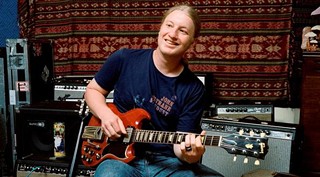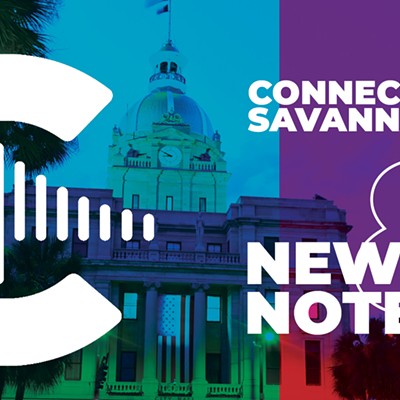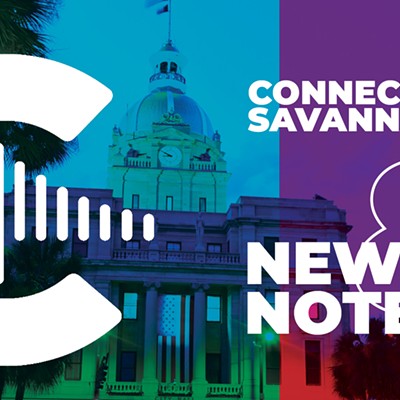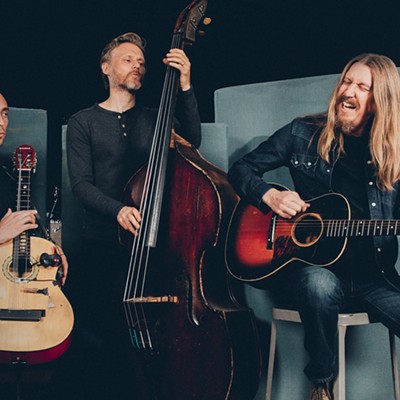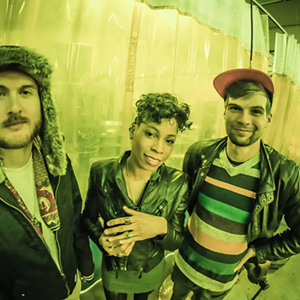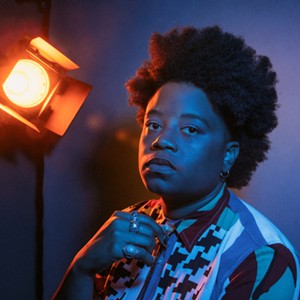The buzz started circulating when Derek Trucks was 11 years old. He was the nephew of Allman Brothers Band drummer Butch Trucks, and he played incredibly, unbelievably soulful slide guitar.
Word was that this little tow–headed kid was the reincarnation of Uncle Butch’s late bandmate, Duane Allman. Derek, in fact, was named for the band Allman and Eric Clapton had once formed, Derek and the Dominos, for the classic, one–off album Layla.
It turned out the rumors were true – at least the part about the kid’s name, and his amazing guitar work. He first sat in with the vaunted Allman band at the age of 15; a year later, he started the Derek Trucks Band, and although the lineup has shifted a bit over the years, it’s still a going concern.
Now 31, Trucks has been around longer than Duane Allman was, and his reputation has been set in the Grauman’s Chinese of rock legend: Rolling Stone named him 81st on its list of “The 100 Greatest Guitarists of All Time,” he’s a full–fledged member of the Allman Brothers Band, and he’s recorded and toured with everyone from Buddy Guy to Bela Fleck.
In 2007, Clapton himself hired Trucks to play second guitar on a round–the–world tour. Featuring a Layla–heavy set, the concerts gave Clapton his best reviews in years – audiences swore that, indeed, Duane’s spirit was in the music, his smoking ring finger tucked inside Derek’s bottleneck slide.
The versatile Derek Trucks Band plays a heady mix of electric blues, steamrolling jazz/funk, and inspired cocktails of Latin, African and other styles. The band is, needless to say, a favorite among jam band aficionados, who can stand in fields, slack–jawed, and watch the phenomenal Trucks burn sonic holes in the universe.
Trucks is married to blues singer/songwriter Susan Tedeschi, and although they’ve often performed onstage together, Thursday’s Savannah Music Festival show will mark the debut – the very first performance – of their new joint venture. A short tour will follow.
The couple and their two young children reside in Jacksonville, Fla., Trucks’ hometown. Trucks called from a New York hotel room the morning after playing a Jimmy Fallon Show with the Allmans.
Why this new co–project, and why now?
Derek Trucks: There’s a lot of reasons. One, our kids are at an age now where they’re in school; they’re not able to just hit the road with us, as before. It was easier for us in the past to just be on the move and on the road and take the kids with us. Meet up on the road and see each other. Not pulling them out of school, it’s a lot more difficult to keep the family as close as we want it to be. When they were smaller, having two bands made more sense. It’s what we’ve been doing forever.
Also, we’ve been talking about really trying to do this for years. The timing just finally feels right. I had been hittin’ it with my band for 16 years, so I almost felt like I needed a little break from it anyways. I think we did our best record, and maybe our best tour, but sometimes when you’re hittin’ those peaks you almost feel like that’s a good time to step away. Rather than riding that peak back down. I think in a way we really got out on top of that cycle with the band.
And then things are changing with the Allman Brothers. Touring a lot less with them, and I really wanted to think a few years down the road and try to set something up with Susan so we could kind of write our own story ... where we get to be home a lot more, and we get to record and write together. There’s a lot of reasons. Everything’s factored in.
When you and Susan met, obviously you hit it off personally, but was it musical, too?
Derek Trucks: Oh yeah, no doubt about it. Both of us, so much of our mental and emotional energy was invested in music – and almost music alone – that I think you need that connection. Music’s not really something you ever need to get away from. It’s not like working in an office, and when you get home you don’t want to talk about it. The part of the music business that’s a pain in the ass is the business side of it, and the traveling. But it’s not the music, so if you have that part in common, I think it only helps.
Tell me who’s in the band and what you’re going to be doing. Is it all new?
Derek Trucks: There might be a few tunes from past projects that we throw in just for a little bit of continuity, and just because we haven’t played together with this group. But for the most part, we spent probably three–plus weeks just writing and hanging out and getting comfortable with different musicians. We had a lot of people coming through and throwing in ideas.
The core of it is Oteil Burbridge and Kofi Burbridge, the two brothers, and me and Susan. Mike Mattison, the singer from the Derek Trucks Band, he’s doing some background stuff with another great singer from New York named Nigel Hall. Tyler Greenwell, who is Susan’s drummer from her band, and a drummer named J.J. Johnson, who was playing with Doyle Bramhall for a while. That’s the group that we’re going to take out.
But we really are just experimenting a lot this year with the songwriting, and the way the show feels. We’re really excited, because there’s a ton of new material. Just in the first three or four days we started writing, there was dozens of ideas. And I think about 20–something of those turned into finished songs. There’s probably another 30 seeds of songs laying around. So it was a really productive time.
We want to make it, in the first few weeks of gigging, almost an all–original project. I still like interpreting covers. I think in blues and jazz, and the realm that we come from, it’s kind of the way you do things. You honor the past and you tip your hat to where it came from.
The Derek Trucks Band has a live album, Roadsongs, coming out. Are you pleased with it?
Derek Trucks: I just got the masters from Sterling Sound up here in New York and I listened to it at 1:30 in the morning last night. It feels really good, man, I’m really excited. We did a bunch of shows last year, including two in Chicago. Both nights were great, but I remember the second night especially. I think a few people in the band independently made the comment that if we do a live record, that should be one of the first looks.
We compiled the live record from those two nights, with an emphasis on the second show. It turned out really great. I think it’s a great stamp on that last year, and on that phase of the band.
After this project, the Derek Trucks Band will come back, right?
Derek Trucks: There’s really no plans. For the first time in my adult life, I wanted to kind of leave the door open and not box myself in. But, you know, it’s 16 years with these guys, and there’s a huge amount of loyalty running both ways, so I’m sure we’ll do something down the road. But I didn’t want to give the project that we were jumping into a definite timeline before we started, you know? Like “Don’t invest too much of your heart in it, ‘cause we’re done in a year.”
Once you started gigging at age 11 or 12, was there ever anything else for you?
Derek Trucks: Even if I couldn’t see the road or how it was gonna end up, there was always this feeling of “This is what you’re going to be doing.” It seemed inevitable, once it started. Not in a forboding way, like in a way where you’re almost willing it to happen. Especially the early years, when we were trying to sign our first record deal. When the band really came together. It wasn’t blues enough for the blues labels, it wasn’t jazz enough for the jazz labels. It wasn’t pop enough for the major labels. It was one of those things where you really had to be stubborn and stick to what you believed in. And keep plugging away.
Looking back, I think I enjoyed those years as much as anything that’s happened since. You’re kind of on a mission as a group, and you don’t really care what people think. Especially labels and critics, and you’re just like “You know what, fuck it. We’re right.”
Without the connection to the Allman Brothers, do you think it would’ve been harder for you to achieve some kind of success? Wouldn’t you have been banging on a lot more doors?
Derek Trucks: I think it certainly factored in. I think it was a double–edge sword, especially when we started experimenting more. There were so many people that expected to hear an Allman Brothers–derived group. I think we had to maybe bang a little harder to write the story the way we wanted to write it.
Certainly in the early years it was something to write about, and it was something for promoters to talk about and put on flyers. But when you’re dealing with a 9– or 10–year–old kid, or even 14 or 15, just the novelty of that is enough to get people to look.
End of the day, you either keep doing it – and it’s worth doing and people come around – or it doesn’t happen for you. I think the story only gets you so far.
If it had happened quicker, or more easily, maybe the Allman Brothers factor would have been a bigger thing. But there was a solid 10 years of the group being in the red. So whatever it was, it wasn’t helping that much!
How much of an influence was Duane’s playing on what you did then, and how you do it now?
Derek Trucks: Early on, that was the first music I heard and really cared about. Where you dig in, and you feel like there’s more to the story, and it’s not entertainment at that point, it’s something you want to find out about.
It was really his playing as much as anything else in the band. I think your first influence sticks with you the hardest. It’s always there.
And then later, joining the band and then doing the Clapton tour and doing all the Dominos tunes, it gave me a chance later in life to re–visit that stuff – I didn’t lose any love for it, I just didn’t listen to it for years. Getting to dig back into it, and having to learn the tunes, was great. His playing is a huge part of me getting started, and essentially what I do.
Clapton is iconic, of course, but how much of an intuitive musician is he? Were you able to draw him out? Is he still a great player?
Derek Trucks: He’s one of those guys ... he came out of the gate so burnin’ and then kind of changed his focus from that to songwriting. I think the Dominos was that transition. That’s why I love those records so much, ‘cause he was still completely on fire. But the songs were better than anything he had done before. I think it’s that perfect crossroads in his career.
He’s gone through so many stages. Being around him, I really learned to appreciate that more, thinking about guys like Miles Davis and other people that kind of refused to be boxed in. Just keep rolling, no matter what people expect of you.
But at the end of the day, there was a handful of shows on that tour where he would reach into his back pocket and break out that knife. And deliver.
He always played way above average. He’s a consummate professional; he always delivers.
He’s one of those guys that doesn’t show his whole bag of tricks every night. That’s something that I enjoy as a musician. There’s some nights where you just want to feel like you’ve been taken to the cleaners, and you’re just dead after the show. Because somebody just whooped your ass. And other nights it was nice that not everything was said.
There was a few nights on that tour where I’d almost forgotten that he could really dig super–deep and do it. There’d be a night where halfway through the show you’re like “Oh yeah – that’s Eric Clapton! Jesus Christ!”
What’s up with the Allman Brothers Band? Where are we?
Derek Trucks: Last year, the 40th anniversary, especially the Beacon Theatre run, was the greatest I’ve ever seen the band play in my lifetime. I saw them for years before I was in the band. But I think last year there was a really magical peak at the Beacon.
As far as hittin’ the road heavily, or doing that, I don’t know if that’s ever going to happen again. I feel like it’s really kind of the natural winding down of things with the band. It’s a natural thing. And I think as long as it’s done right, and as long as every show the band plays now is up to its standards, then it’s gonna keep rolling as long as it can.
Derek Trucks/Susan Tedeschi
Savannah Music Festival
Where: Johnny Mercer Theatre, Savannah Civic Center, 301 W. Oglethorpe Ave.
When: 7:30 p.m. Thursday, April 1
Tickets: $27–$73
Online: www.savannahmusicfestival.org

